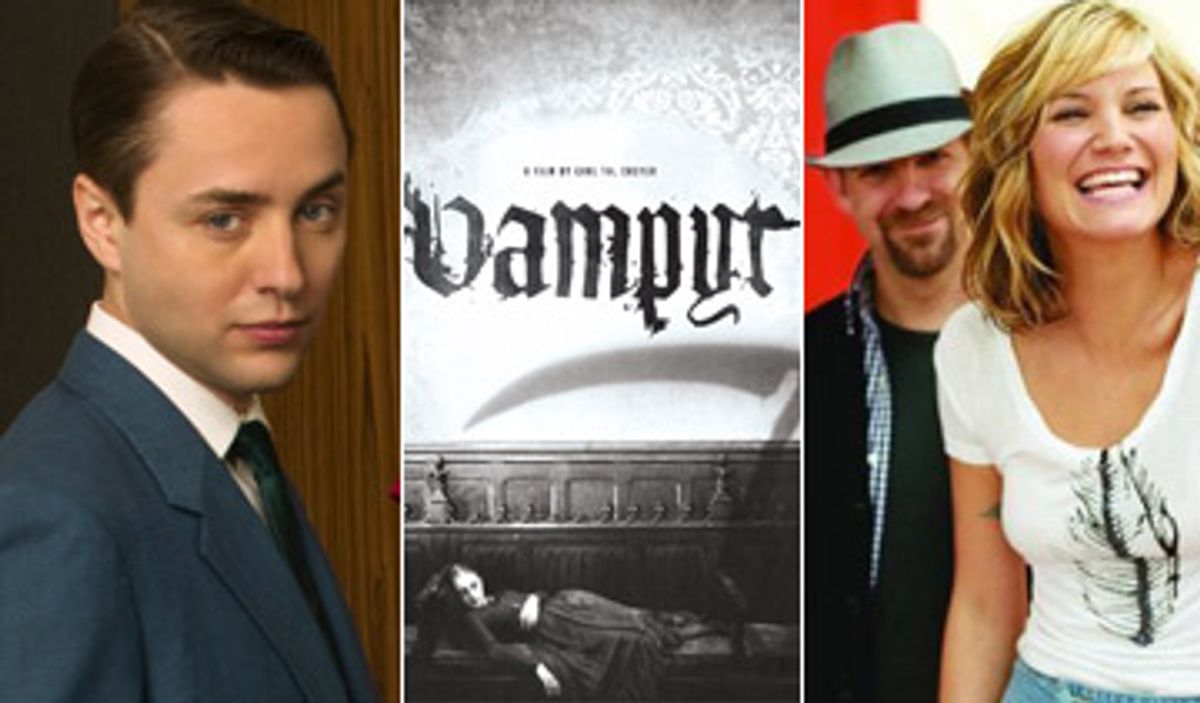 "Happy Trails to You" by Julie Hecht
"Happy Trails to You" by Julie Hecht
I love the nutty narrator of "Happy Trails to You," Julie Hecht's splendid new short story collection, even though I would probably try to escape from her if I met her at a party. A photographer fixated on odd things -- one of her recent projects is photos of old people posing with their old appliances -- Hecht's heroine (who will be familiar to readers of her previous books, "Do the Windows Open?" and "The Unprofessionals") makes her way through the dreamy summer days of Nantucket as if picking through a minefield. Everything is a potential danger to her: Republicans, germ-ridden money, ignorant health-food-store clerks, cable news shows and well-meaning neighbors who offer her ham (she's a vegan) or bottled water ("can impart plastic molecules to the water"). Hecht spins her character's anxiety into a web of hilarious and affecting meditations on things the rest of us take for granted. As the narrator rightly remarks in one story, "I was thinking about the world. This is a mistake and can lead to insanity." -- Joy Press
Sigur Ros' "Med Sud I Eyrum Vid Spilum Endalaust"
It would be nice to hate the precious music of Sigur Ros, with its lovably melodious tidal waves and repeating modern-day hallelujah choruses. Self-respecting listeners should really turn their backs on the vulnerable quavering of Jónsi Birgisson's falsetto, sweetly warbling Icelandic lyrics that we can only guess express nothing but raw sentimentality and longing. Sadly, though, Sigur Ros slays us every time, weak humans that we are. Their latest album offers one irresistible refrain after another, each infinitely layered and ornately arranged like a pretty wedding cake that's also so delicious, it makes us forget that we don't believe in marriage in the first place. -- Heather Havrilesky
 "The Treatment" podcast
"The Treatment" podcast
The art of serious filmmaking often seems to take a vacation during the summer months, but I can always get my cineastic fix listening to Elvis Mitchell's interview show for KCRW in Los Angeles. A former New York Times film critic, Mitchell is one of the best arts interviewers ever; you can actually hear his guests' enthusiasm and respect for his questions grow as the conversations go along. I've probably learned more about moviemaking from listening to "The Treatment" than I have from any class or book -- and I'm looking forward to watching his new TV series, "Elvis Mitchell: Under the Influence," which debuts this week. -- Laura Miller
Manoel de Oliveira's "Belle Toujours" on DVD
I guess you already have to be a Euro-art-film geek even to be interested in Manoel de Oliveira's "Belle Toujours," a sort of mock sequel to Luis Buñuel's 1967 erotic-surrealist masterpiece "Belle de Jour," in which Catherine Deneuve played Séverine, a middle-class housewife drawn into masochistic fantasy and prostitution. But I can't help myself, and now that it's out on DVD (from New Yorker), Oliveira's bitter, strange and compressed riposte may finally find the audience it deserves. Great French actor Michel Piccoli brilliantly reprises his role as Henri (Séverine's husband's best friend, in the original), a suave, aging alcoholic who happens upon the ex-housewife and ex-hooker (played this time by Bulle Ogier) 38 years later in a Parisian hotel. It's a dark, witty and supremely unsentimental film, without a wasted shot, line or breath. Oliveira was a mere tot of 96 when he shot this -- he's now 99, with a new feature in pre-production -- but if "Belle Toujours" turns out to be his swan song, it's quite a way to go. -- Andrew O'Hehir
 Gene Vincent's "A Million Shades of Blue"
Gene Vincent's "A Million Shades of Blue"
"A Million Shades of Blue" is actually a compilation of two albums that legendary and beloved '50s rocker Gene Vincent (of "Be-Bop-a-Lula" fame) recorded in the early '70s, at a point in his career when he'd been practically forgotten. Fifties rock 'n' roll was a descendant of country and the blues, and here, Vincent takes the genre home again. Vincent died just a few months after the release of the second album, in 1971, but you can't hear any portent of death or decay in his voice: Rock 'n' roll is a genre of contradictions, and Vincent's voice always had a rich, satiny roughness -- right up to the end. -- Stephanie Zacharek
******
What's on your list to read, watch, do this week? Share your recommendations with other readers.
******
Catch up on recent Salon Critics' Picks.



Shares